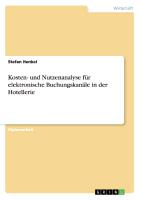- Start
- Slovenian people of World War II
Slovenian people of World War II
Angebote / Angebote:
Source: Wikipedia. Pages: 43. Chapters: Slovenian Nazi collaborators, Slovenian civilians killed in World War II, Slovenian partisans, Franc Rozman - Stane, Edvard Kardelj, Gregorij Rozman, Boris Pahor, Slovene Home Guard, Joze JavorSek, Edvard Kocbek, Leon Rupnik, DuSan Pirjevec, Bozidar Jakac, Ernest Peterlin, Boris Furlan, France Bevk, Vitomil Zupan, France Bucar, Matej Bor, Lyenko Urbanchich, Andrej Gosar, Mitja Ribicic, Vladimir Bartol, Miha Krek, Ljubo Sirc, Karel Destovnik Kajuh, Fran Zwitter, Bogomir Magajna, Anton VratuSa, Ivo Brncic, Herta Haas, Danilo Lokar, Tone Cufar, Boris Kidric, Ferdo Kozak, Alojzij Kuhar, Avgust Pirjevec, Igo Gruden, Viktor Blazic, Fran Albreht, Ciril Kosmac, JuS Kozak, Ivan Ahcin, Milan Apih, Josip Vidmar, Janko Pleterski, Bojan stih, Mile Klopcic, Franc Frakelj, Slavko slander, Anica Cernej. Excerpt: Gregorij Rozman (alternative spellings: Gregory, Gregori, Gregorio, Grigorij Rozman) (1883-1959) was a Bishop of Ljubljana, Slovenia (1930-1945). His prominent role in the Second World War has made him a controversial figure in Slovenia. While the Catholic Church in Slovenia and some right-wing historians, journalists and politicians maintain he was a pragmatist who sought the best for the people of Slovenia in circumstances of utmost difficulty and danger, mainstream scholars contend that he was a leading collaborator with Italian and German occupying forces and an ardent opponent of Josip Broz Tito's partisan forces. He was born into an ethnic Slovene family in 1883 in Dolincice, (Austrian: Dolintschitschach) near Feistritz ob Bleiburg in Austria. He became a priest (1907) and a Doctor of Theology (1912). From 1919 he was a lecturer in Canon Law at the Theological Faculty in Ljubljana, and was made Bishop of Ljubljana in 1930. Rozman is known to have believed in a "Jewish conspiracy", and was passionately anti-communist, referring to the Partisans as "wolves and jackals". He was on friendly terms with SS General Erwin Rösener, who ordered mass executions of civilians in Slovenia and was posthumously indicted in Nuremberg for war crimes. Yugoslavia was invaded by the Wehrmacht on 6 April 1941, following their swift victory, Yugoslavia was partitioned by the Axis powers, with Ljubljana and much of the rest of Slovenia going to the Italian zone. On the day of the occupation Rozman had the Church's secret archives in Ljubljana burned for fear of them falling into the wrong hands. Rozman publicly welcomed the Italian occupation. On 3 May 1941 the region was incorporated into Italy as a province, and Rozman wrote a memorandum to Mussolini saying Bishop Gregorij Rozman and SS General Erwin Rösener in conversation"Excellency! A decree has been published today, via which the Slovenian territory occupied by the Italian army has been incorporated into Italy. When I consider
Folgt in ca. 5 Arbeitstagen

